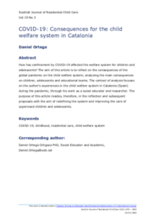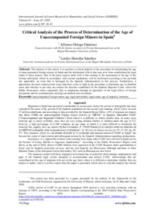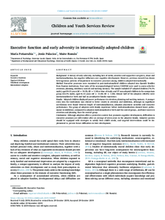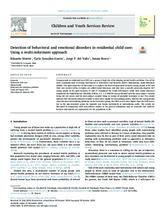Displaying 61 - 70 of 149
The aim of this article is to reflect on the consequences of the global pandemic on the child welfare system, analysing the main consequences on children, adolescents and educational teams. The context of analysis focuses on the author's experiences in the child welfare system in Catalonia (Spain) during the pandemic, through his work as a social educator and researcher.
The purpose of this article is to perform a critical analysis of the procedure for determining the age of unaccompanied foreign minors in Spain and the detrimental effects that may arise from establishing the legal status of these minors.
The objective of this work is to determine the factors associated with deciding to address family reunification from residential care (RC).
The objective of this work is to determine the factors associated with deciding to address family reunification from residential care.
The objectives of this study were: (a) to identify the rate of placement breakdown in Spain, understood as the unplanned termination of a foster placement; (b) to explore the variables associated with foster placement termination, and finally (c) to determine to what extent each variable can explain placement breakdown.
This study aims to assess possible changes in family and parental dynamics among families taking part in a short (6‐session) universal program.
In this study, executive functions were examined in post-institutionalized children adopted into Spanish families from Russian institutions.
This article elaborates on provisions concerning the international protection system for minor migrants. It examines entry strategies put into place by young migrants facing the Spanish migration system.
The main objective of this study is to analyze the level of agreement between young people in residential care (RC) and their care workers (who, in Spain, are called social educators, and who have a specific university degree).
This chapter from the book Education in Out-of-Home Care assesses a pilot project aimed at improving the school-based learning of children in residential care in Austria, Croatia, France, Germany and Spain.




